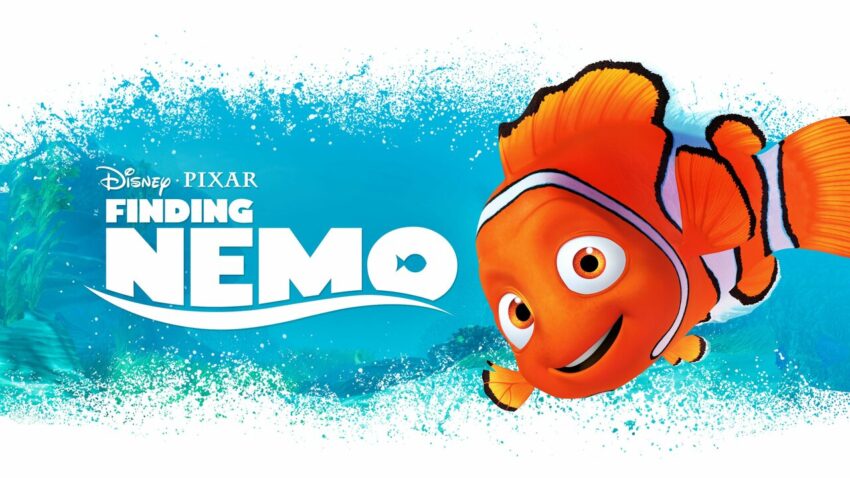We’ve all come across parts of our story that we, as writers, have complete control of.
The screenwriters get to decide when Spider-Man runs out of web fluid. The writers can choose how much the traitor knew before he betrayed his friends to the villains. Whether or not the fans fall in love with Huntrix’s new single is completely up to the writers.
These sorts of elements ring of Deus Ex Machina — something that makes it obvious that you, as the writer, have complete control of the books’ world and could solve your protagonist’s problems with a scrawl of your pen. Essentially it breaks your readers’ suspension of disbelief because they see that there’s nothing to believe. Everything is controlled by you, as the author, which instantly makes your entire book seem more cheap.
But no matter how careful and intentional you are, eventually you’re going to run into rules of the world that you’ve set up that you have complete control of. In short, you’ll run up against Deus Ex Machina that is unavoidable.
So how can you write these elements in a way that doesn’t make your whole world seem contrived? How can you ensure you don’t annoy your readers or make it painfully obvious how much control you have over your characters’ world?
Finding Nemo and (and it’s sequel Finding Dory) might just have the answer
Finding Nemo Versus Finding Dory
Finding Nemo tells the story of a small clownfish named Marlin, terrified of the massive ocean that killed his wife and children. He now lives in the safety of a sea anemone with his only surviving family — his young son Nemo, who is desperate for adventure away from his father’s stifling control. But he takes his freedom just a little too far and ends up captured by fishermen, sold to be put in a dentist’s fishtank.
Marlin is panicked, desperate to find his son but left in the ocean with only one lead — a forgetful fish named Dory who claims to have seen the boat who took his son. Despite Marlin’s irritation with Dory’s cheerful carelessness, the two are forced to work together. Their plans are continually frustrated by both the dangers of the ocean and Dory’s short-term memory loss, which make any sort of overall plan almost impossible.
Despite the challenges, Marlin and Nemo are eventually reunited. For a while, all goes well, until a head injury triggers one of Dory’s forgotten childhood memories, and she remembers her missing parents. In her search to find them again, she ends up separated from Marlin and Nemo. As she uncovers more and more about her past, her memories gradually return. Finally, she reunites with her parents and together they set out to find Marlin and Nemo once more.
Dory’s Memories
Finding Nemo is one of those early Pixar masterpieces. And while its sequel Finding Dory made for a fun family movie, a lot of the magic the original possessed was simply missing. This came from a few different factors, from simpler characters to less developed arcs, but one of the biggest changes was how much less real the world seemed. And the reason for that comes down to one single element.
I don’t know if you noticed, but the writers of both movies had complete control of Dory’s memories. What she remembered and what she didn’t was like a switch that they could turn on and off — infinitely making Marlin’s life easier or exponentially complicating it. Yet especially in the first movie, it didn’t feel that way. Much of the audience might not have even realized that it could have easily turned into a form of Deus Ex Machina, where the writers could just solve Marlin’s problems by using Dory’s forgetfulness (or lack thereof).
This changed subtly between the two movies. It became increasingly clear throughout Finding Dory that the writers had complete control of Dory’s memories, and that’s part of what played into the issues in the second movie.
So what changed in the writing process between movies? What elements played into Dory’s memories becoming more and more like Deus Ex Machina? And how can you avoid those same pitfalls in your own writing?
1. Make It Unpredictable
As viewers of the first movie, we had no idea when Dory would lose a memory and when she’d remember it. It was unpredictable and thus felt more real, less like the writers were constructing the world for their own purposes. In contrast, throughout the second movie Dory simply gradually remembered more and more of her past. Now this can work in some cases. If a magic system is set up as growing gradually more and more powerful, staying true to a certain principle can work. But Dory’s memory loss had been established as completely unpredictable in the first movie. Having it suddenly become a progression of regaining memories felt unrealistic, breaking the suspension of disbelief the audience extended in the first movie.
The most important thing you can do to make sure your readers aren’t irritated is make what you control unpredictable. If your last three battle scenes have all resulted in characters miraculously surviving a seemingly-deadly knife wound, maybe switch it up. On the other hand, if they’ve come out of each fight unscathed, make sure you’re still reinforcing the stakes by allowing real consequences to come from dangerous situations.
2. Make It Work Against Your Protagonists
This is the biggest difference that I noticed between Finding Nemo and Finding Dory was how Dory’s memories (or lack thereof) functioned as an asset rather than a liability. In the first movie, Dory’s lack of memory was an active detriment to their progress. She forgot directions, addresses, and instructions, frustrating both their plan to get back home and Marlin. In the second movie, this feature is almost gone. Most of what goes on in regards to her memories is her conveniently remembering things just in time for it to become pertinent to the plot, thus helping the characters around her as they all got closer and closer to their goals.
When the elements that you control in your story continually serve your protagonists by making their lives easier, your plot will quickly start to feel contrived. However, if you are using a certain element in your work to consistently make life harder for your characters, your readers might not even notice you’re in control of that element. Not only will the difficulty make it easier for your readers to relate to your characters, cheering them on as they face further challenges, it will also give you an opportunity to let your characters develop. A lot of Marlin’s development never could have happened if Dory hadn’t suffered from short-term memory loss. Sure, her cheery attitude and bright spirit might have annoyed him, but so much changed about the way he saw other people that never could have happened without the writers going out of their way to use Dory’s memory loss as an obstacle.
3. Force Your Characters to Overcome It
Despite her persistent optimism, eventually even Dory realizes that her memory loss is proving to be a significant obstacle to finding Nemo. After much trial and error, she discovers that she can permanently remember certain things by intentionally repeating them. She’s able to remember the address where Nemo was taken, and learns that although she’s still limited, there are creative ways to work around it that she hadn’t seen before.
Readers love to see your characters fight against something and ultimately succeed. Make sure you’re using the elements you control in your story to force them to gain new skills, perspectives, and abilities through difficulty. Don’t just throw challenges at them for no reason, but rather let those experiences grow and change them until they become the best version of themselves. And those changes don’t even necessarily have to be internal. Dory didn’t change a whole lot in the first movie, and that was fine. Her arc was still intriguing because she was developing new skills and aspects to her character. That tenacity and unwillingness to quit can become some of the most endearing qualities of your characters.
Writing with elements you necessarily control as the author can be tricky, but it’s not impossible. You’re not doomed to irritating your readers because there are certain elements in your story that are entirely up to you. In fact, with the right tools and purpose, you can actually leverage these elements to serve your story, making a world, plot, and characters that are actually stronger because of them.



Let us know:
What stories have you noticed contain elements that are completely under the author’s control?


Hi! My name is Mara, and I’m a Christian artist, violinist, and blogger. I remember the day that I decided that I would learn something new about what makes a good story from every book I picked up — whether it was good, bad, or a mixture of both. I use this blog as a way of sharing some of the tips and tricks I’ve learned, and highlight which books, cartoons, and movies have taught me the most about writing an awesome story.

